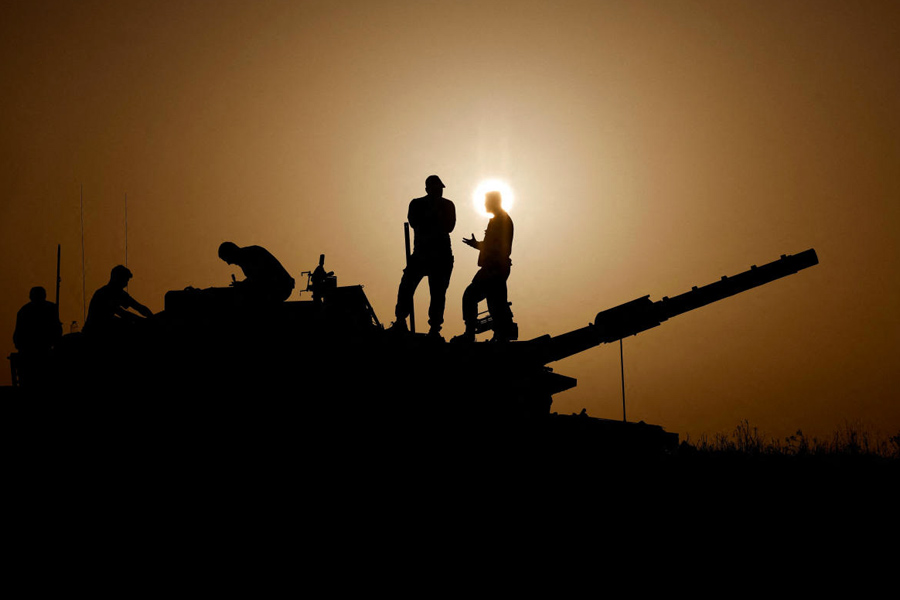After three years as President Joe Biden’s quiet man at the Pentagon, defence secretary Lloyd Austin stepped off his plane at Ben Gurion Airport in Tel Aviv, Israel, on Monday and into the limelight.
It was his second visit to the region since Israel launched a war in the Gaza Strip in retaliation for the Hamas-led terrorist attack on October 7. During meetings and conversations with Israeli officials, Austin has stressed both the Biden administration’s support for Israel and concerns about the rising Palestinian death toll.
But his message has become more blunt: Israel, Austin recently predicted, could face “strategic defeat” that would leave the country less secure if it does not do more to protect civilians.
The warning is one that Austin is well-equipped to deliver. The retired four-star general brings a wealth of military experience in combat, including urban warfare. Early US efforts to target the Taliban and insurgents in Afghanistan in 2004. The troop “surge” in Iraq in 2007. The planning to pry Mosul, Iraq, from the hands of the Islamic State group in 2016. Austin was involved in all of that.
As the Biden administration navigates the Gaza crisis, the intensely private Austin is taking a prominent role and also revealing more of himself.
“You know, I learned a thing or two about urban warfare from my time-fighting in Iraq and leading the campaign to defeat ISIS,” he said in a speech at the Reagan National Defense Forum this month, using an alternative name for the Islamic State. “The lesson is not that you can win in urban warfare by protecting civilians. The lesson is that you can only win in urban warfare by protecting civilians.”
Republicans criticised the defence secretary for not sounding supportive enough of Israel. The day after the speech, Senator Lindsey Graham told CNN’s State of the Union that Austin was “naïve”, adding, “I’ve just lost all confidence in this guy.”
But critics of Israel’s bombing campaign say the message is long overdue, as the death toll in Gaza nears 20,000, according to health officials there. “This level of civilian killing and destruction, and the rage it generates, guarantees militant recruitment and support for resistance among future generations, both in Palestine and beyond,” said Daniel Levy, a former Israeli peace negotiator who is now the president of the US/Middle East Project.
New York Times News Service











